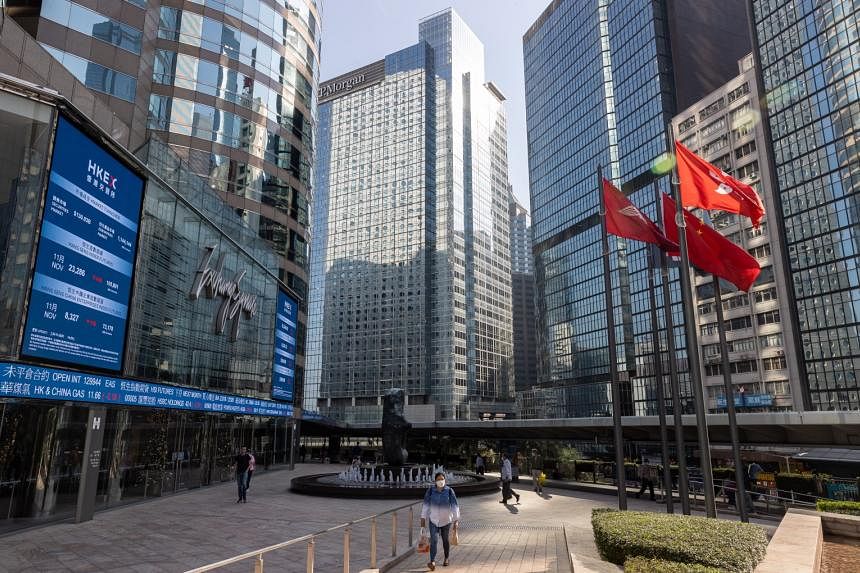HONG KONG (AFP) - Most Asian markets rose on Tuesday (July 5) on growing speculation that US President Joe Biden is about to roll back some of the Trump-era tariffs on Chinese goods as he looks for ways to rein in inflation, though sentiment remains at a premium owing to fears of a recession.
Japan's Nikkei index was up 0.8 per cent at the midday break, while Hong Kong's Hang Seng gained 0.3 per cent and South Korea's Kospi index rose 1.1 per cent. The Shanghai Composite was down 0.4 per cent, reversing earlier gains.
Singapore's Straits Times Index was down 0.3 per cent at 10.55am local time.
The mood on trading floors has become increasingly gloomy in recent months as observers warn that sharp interest rate hikes aimed at curbing price rises could cause a contraction, compounding uncertainty caused by Russia's war in Ukraine.
Still, equities were up on Tuesday on talk that the White House is about to remove duties on some of the hundreds of billions of dollars worth of imports from China, with reports saying that an announcement could come this week.
With some of the tariffs due to expire soon, officials in Washington have been discussing the measures with an eye on inflation, which is sitting at four-decade highs.
In a sign that something could be on the cards, China's state-run Xinhua news agency said Treasury Secretary Janet Yellen and Vice-Premier Liu He had held discussions.
"The two sides agree that as the world economy is facing severe challenges, it is of great significance to strengthen macro-policy communication and coordination between China and the United States," it said.
"And jointly maintaining the stability of the global industrial and supply chains is in the interests of both countries and the whole world."
Reports also said that Mr Biden was considering launching new probes into industrial subsidies - allowing for more targeted measures in strategic areas - to appease China hawks.
"Given that inflation remains the White House public enemy No. 1, (investors are) leaning towards a gradual rollback of some China tariffs as it would reduce end costs to US consumers," said SPI Asset Management managing partner Stephen Innes.
However, some commentators said that while the removal of some tariffs would be widely welcomed by traders, it was unlikely to have a long-lasting effect on inflation.
"Markets are likely to react positively... because at this point, we are hungry for any signs of positive news," said Saxo Capital Markets Singapore market strategist Charu Chanana.
"But we don't see the move impacting the global growth and inflation dynamics in a significant way."
Oil prices rose on expectations that demand will continue to outstrip supplies as the Ukraine war rages with no sign of an end, while investors are keeping tabs on China as fresh Covid-19 outbreaks have led to some cities being put into lockdown.
Months-long flare-ups in Shanghai and Beijing earlier in the year saw millions of people ordered to stay home, sending shockwaves through the domestic economy and battering supply chains.
"China is the real wildcard here - it is going to be two steps forward, one step back," said Mr Daniel Hynes, senior commodity strategist at Australia and New Zealand Banking Group.
"A demand recovery in China could potentially offset weakness in developed economies as central banks tighten monetary policy."

